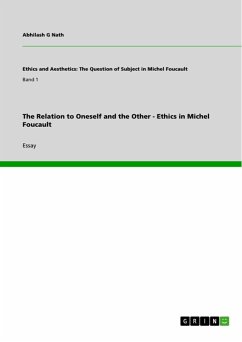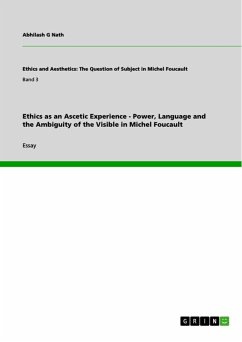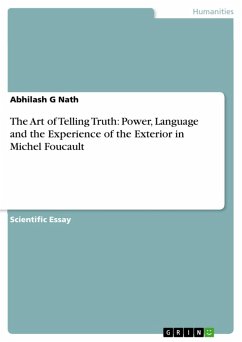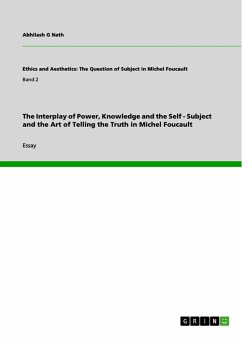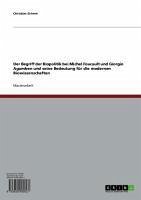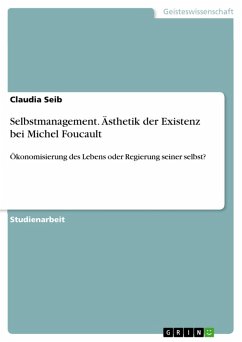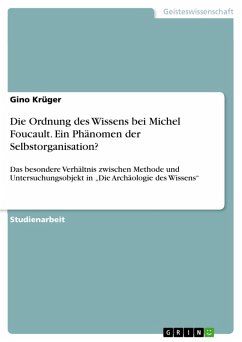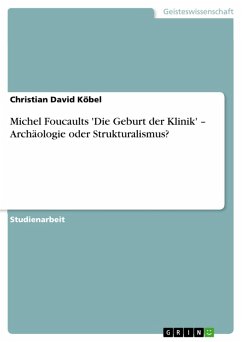Essay from the year 2011 in the subject Philosophy - Philosophy of the 20th century, Jawaharlal Nehru University (New Delhi), language: English, abstract: In the later years of his life, Foucault associates his genealogical studies of discourse, institutions and practices to the Kantian 'ontology of ourselves,' insisting that they, like Kantian ontology, are focused on something within our present in order to initiate change from within. His reflections on the question of "what our present is?" provide an experience of modernity precisely that aspect of it which is mostly fragile or sensitive at the present time, to permit us to emerge from it as transformed. To put differently, the point is to show that what appears obvious to us from the standpoints of modern scientific, legal and moral discourses is not at all so obvious. This fragility of the present beliefs and practices, Foucault argues, must be grasped in the question "what it is?" and should be attempted to transform by using the desire for freedom. In a similar line, Kant argues that "have courage to use your own understanding" is the motto of enlightenment.
Dieser Download kann aus rechtlichen Gründen nur mit Rechnungsadresse in A, B, BG, CY, CZ, D, DK, EW, E, FIN, F, GR, HR, H, IRL, I, LT, L, LR, M, NL, PL, P, R, S, SLO, SK ausgeliefert werden.

